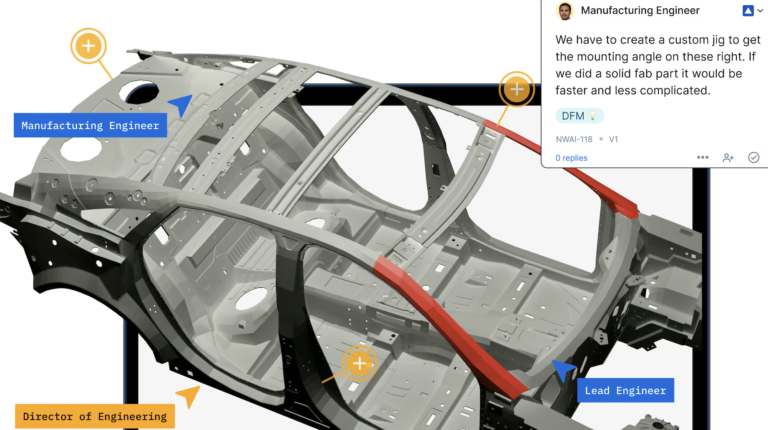Automotive manufacturers in the USA and Europe must drastically rethink their new product development timelines to stay competitive against aggressive Chinese rivals. That’s the view of CoLab, a tech company specializing in collaborative design review and AI solutions for hardware engineering teams, which works with industry giants such as Ford and Schaeffler.
As CoLab highlights, according to the European Automobile Manufacturers Association (ACEA), European car production has remained largely stagnant since 2010, slipping just 1.5% from 18.3 million to 18 million in 2023, with the UK seeing a decline of up to 12%. In contrast, data from the International Organization of Motor Vehicle Manufacturers (OICA) shows that Chinese auto makers have surged ahead, increasing production by 105% – from 13.9 million to 28.5 million – over the same period.
Chinese car makers benefit from fewer regulations, strong in-house capabilities and government-backed supply chains – advantages that enable them to speed up product design. While leading European and US OEMs like Volkswagen and Renault traditionally take 200-216 weeks to develop a new vehicle, Chinese competitors such as Nio operate on much shorter timelines, bringing new designs to market in about 120 weeks – nearly twice as fast.
Meanwhile, US manufacturers face growing challenges, including tariffs on goods from Canada, Mexico and China. In response, the industry must prioritize building a more resilient supply chain.
“China controls critical resources for EV components. To stay ahead, or indeed catch up, we need to accelerate innovation, optimize costs, diversify supply chains and leverage heritage and quality for differentiation. The competition is heating up. It is disruptive and it will help us to ultimately progress faster,” said Stephen Gibson, head of product development for Autoneum.
Businesses can drive innovation and reduce costs right from the design stage – without sacrificing quality – by modernizing the request for quote process (RFQ) and integrating co-design early on, CoLab notes.
Adam Keating, co-founder and CEO of CoLab, said, “Engineering-led supplier co-design is an easy way to build supply chain resilience. Today OEMs send out an RFQ, wait for a response, and then share product data with preferred partners only when the design is finished. Instead, OEMs can bring suppliers into design when the CAD is evolving. Leveraging modern digital tools, like CoLab Portals, engineers and suppliers do collaborative tech reviews during RFQs to accelerate and remove admin from that process. This allows them to design together in parallel and adapt to changes in real time. This is engineering-led supplier co-design and it’s the simplest way for OEMs and suppliers to develop products concurrently while avoiding costly late-stage changes.
“Now the OEM wins because they benefit from a smoother, faster design process. Suppliers win because they have a competitive advantage in future RFQs. And both win by collaborating rather than reacting. The companies that adapt to this new way of supply chain collaboration see 30-50% faster lead times, two times faster design cycles and an up to 50% reduction in BOM costs.
“The OEM wins, too because by making these changes, engineering teams can cycle through product design iterations daily or weekly, cutting product design times in half. This is also very useful when it comes to redesigning parts. We’re seeing redesigns that cut bill of material (BOM) costs by 30% or more.”
Despite a slowdown in sales and production in 2024 – driven by reduced subsidies and strategic adjustments ahead of stricter emissions regulations – Europe is set to introduce 160 new EV models in 2025. However, to compete with Chinese alternatives, these models must be both price-competitive and exceed consumer expectations, says CoLab.
“The EV race has been going on for nearly five years, which means companies going to market with models now are already very late. Success will hinge on the ability to be nimble, on simple platforms and on the strength of the ecosystems car makers build,” commented Keating.
“The pace of innovation also means that some EVs are out of date by the time they hit the market. Product delays and missed milestones can cost millions of dollars, which car makers cannot afford in a market that is already seeing widespread discounting. Traditional car makers will need to double product design speeds and eliminate typical four to five year product cycles, or risk collapse.”
Andrew Walden, senior project engineer at Ford Pro Special Vehicles, commented, “It’s a massive increase in speed. We’ve rolled out CoLab to our entire 200-strong convertor network in Europe to accelerate design iterations and drive more innovative solutions. Now the converters can see the vehicle sooner, so they can get Ford products into the market quicker and help us be more competitive as a company.


